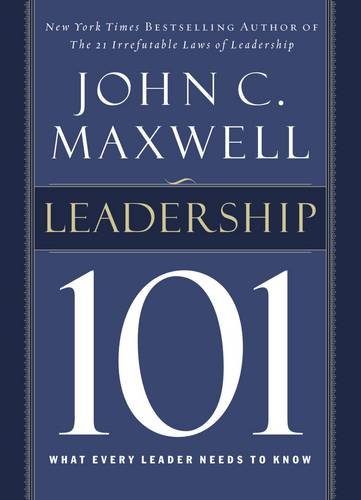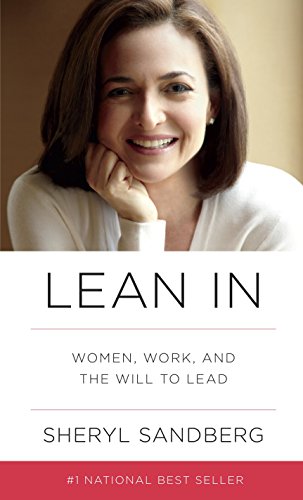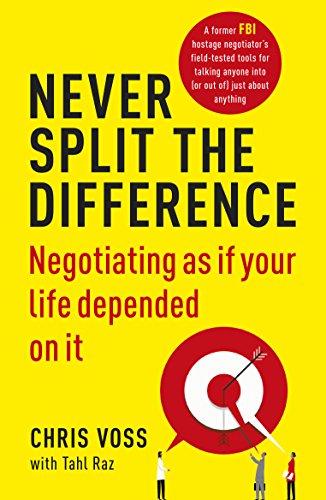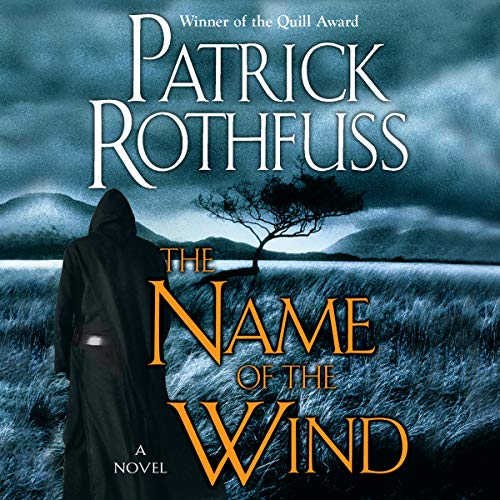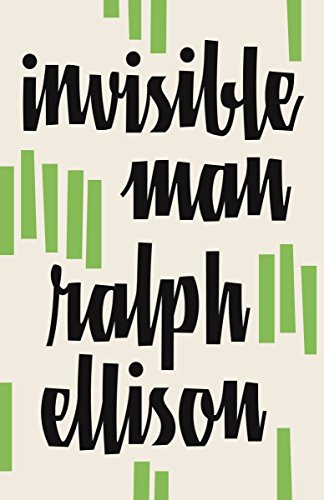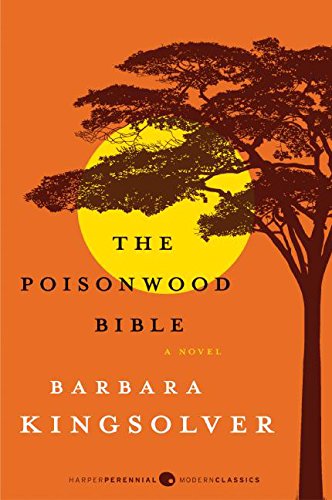optiMize Community Book List
Book Recommendations from the optiMize Community
We collected book recommendations from the members of our community. Here is a selection of nonfiction, fiction, and more reading recommended by mentors, fellows, and organizers:
Non-Fiction
Just Kids by Patti Smith
“This book by Patti Smith changed my perception of my art work and intention with projects and people. I really recommend it for anyone that likes reading personal entries and vulnerability in experiences and art. Smith talks a lot about friendships and relationships, and how those two things journey in and out of each other with different people through life. It’s an easy read and might help you understand yourself or others a bit more through reading about Patti Smith's life. Definitely one of my all time favorite books.” -- Grace Coudal, Cohort 7 Fellow
Winners Take All: The Elite Charade of Changing the World by Anand Giridharadas
“This book is a must read for anyone working in the impact space. Doing social innovation demands a heightened self-awareness and deep understanding of the effects and societal implications of the work you're doing. Good intentions and heartwarming stories alone aren't enough to preclude harm on other people and the planet. Anand Giridharadas doesn't shy away from the hot takes in this book as he dissects a number of people and organizations that on the surface might seem to be benefiting the world, but instead turn out to be obscuring an unjust facade.” -- Jeff Pituch, Staff
The $100 Startup by Chris Guillebeau
“This book is what actually inspired me to start Oshki in the first place. It talks about how easy it is to start something in today's atmosphere, and how chasing something you are passionate about is the key.” -- Jackson Riegler, Cohort 7 Fellow
Crucial Conversations by Al Switlzer and Others
“This book changes everything in your life for the better. If you don't inherently understand the mechanics of crucial conversations (few do) it will make it a lot harder to succeed at whatever you are after in life especially in the start-up social innovation realm.” -- Chris Karounos, Cohort 7 Fellow
The Origins of the Urban Crisis: Race and Inequality in Postwar Detroit by Thomas J. Sugrue
TW: racism, violence
“This is an essential book to understand Detroit, as well as many other American cities. It examines how racist housing policy and labor policy at the federal and municipal level impacted the material conditions for black Detroiters. The book provides answers to the following questions: Why are there racially segregated ghettos in virtually every American city? Why is Detroit worse off materially than so many other cities? It’s a really well written book that does so much to explain why cities look the way they do today.” — Jeff Schwartz, Mentor
The Mindful Day: Practical Ways to Find Focus, Calm, and Joy From Morning to Evening by Laurie J. Cameron
“This book really helped me find clarity in how to be more productive, present, and healthy within my every day tasks. I think everyone should read this book to find ways to be more present and excited with life, whether that's changing your alarm clock sound, understanding your emotions, or being productive with projects. This book really puts a lot of small daily experiences most humans go through into a new light to help you make the most out of your day. It's a very easy book to read and the chapters are about four pages with lots of tips on mindfulness. Definitely an important book to read while working on your optiMize project, and an amazing book to help kick off your productive joy filled summer.” -- Grace Coudal, Cohort 7 Fellow
Shoe Dog by Phil Knight
“Account of Phil Knight and his experience in starting apparel company Nike, Phil Knight's intriguing storytelling throughout the novel made it a great read and also gave me a new perspective on Nike as a company. “ -- Jackson Riegler, Cohort 7 Fellow
Leadership 101 by John Maxwell
“This book talks about what being a leader really means - not only in an organization but also within each person. It changed my life and my way of thinking about what leadership really is.” -- Scarlett Ong, Cohort 7 Fellow
Blue Ocean Strategy by Renee Mauborgne and Chan Kim
“Great book for fellow entrepreneurs to think about how to innovate in a new space with current ideas rather than competing in the blood shed of competitive products/industries.” -- Scarlett Ong, Cohort 7 Fellow
Bad Blood by John Carreyou
“Insight into the nearly unbelievable story of Elizabeth Holmes and the rise (and fall) of her med-tech startup, Theranos. This book provides in-depth details of how Holmes was able to con investors, corporate giants, and much of Silicon Valley into believing she had created a ground-breaking medical device that didn't even exist. Or for the entrepreneur: things to avoid doing as you develop your business. :)” -- Jake Beason, Student Staff
Lean In by Sheryl Sandberg
“I read this book when I first started my career, and while I am not in the same exact situation as Sheryl because I don't have a family, I still took away a lot about balancing my life, "sitting at the table/leaning in", and inspired me with ways to jump into my future head first. This book is NOT just for women - it's a wonderful resource for all and can help you gain perspective and re-energize you, regardless of your identity.” — Rosanna Baskin, Mentor
Mountains Beyond Mountains by Tracy Kidder
“Paul Farmer is a pretty inspiring figure and I think what he's done would resonate with this group of people. After the [Tuesday night community] dinner and hearing the panel speak about their experiences with "success" and how there's always more obstacles and barriers to deal with, I thought this would be a great fit.” — Matt Aldrich, Mentor
Redevelopment and Race: Planning a Finer City in Detroit by June Manning Thomas
TW: racism, violence
“This book is like the handbook of urban planning in Detroit. It does a really good job examining the history of racist urban policy from the federal, state, regional, and municipal level. It provides context for the suburban expansion in metro Detroit and explains how the physical geography of the city as we know it today came to be.” — Jeff Schwartz, Mentor
Peace Is Every Step by Thich Nhat Hanh
“I wrote a very long blurb for my other recommendation, so for this one I'll just say: Thich Nhat Hanh has helped me learn how to breathe. He's helped me understand that both suffering and joy are present in every moment and every person, and that's okay. Even ten minutes of reading his writing can make me feel more relaxed and centered. Highly recommend!” — Jeff Sorensen, Staff
The Wander Society by Keri Smith
“Not a super serious read, but kind of wonderful in a weird way. Makes you want to get out and just experience the world.” - Dylan Plummer, Cohort 6 Fellow
Graphic Design: The New Basics by Ellen Lupton, Jennifer Cole Phillips
“An overview of all things graphic design. For any designers out there, it's a great book to flip through when looking for inspiration / tips and tricks as you approach a project.” -- Jake Beason, Student Staff
Never Split The Difference by Chris Voss
TW: hostage situation
“Negotiating! A former hostage negotiator covers high-stakes negotiating but this book also provides super functional advice that can translate to handling conflicts.” — Rosanna Baskin, Mentor
The Mind Illuminated by John Yates
“A step by step guide to learning and deepening meditation practice, I have found it has helped me much much more than any other book on the subject.” — Dylan Plummer, Cohort 6 Fellow
Understanding Power by Noam Chomsky
“If I have one recommendation for anyone who cares about social change, it's "Read Noam Chomsky." This book changed my life more than any other. Chomsky gave me a new vocabulary to understand that the major crises and injustices in the world are not occurring randomly — they are to a large extent the results of decisions made by a small group of people who understand how power operates and try use it for their own benefit. It can be scary to realize this, but the upside is that once we identify that there are specific causes, we have a better chance at opposing them. Chomsky has been the foremost critic of American power for more than 50 years, and he compellingly argues that the US, as the most powerful country in history, bears the most responsibility for many of the major crises in the world. And even more importantly, that US citizens bear the most responsibility to criticize and oppose our own government, because we have the most power to change it. Before we can oppose effectively, though, we need to understand how things actually operate — and this is often obscured by layers of propaganda and orthodoxy, intentionally spread by the same powerful people in the interest of reducing popular resistance. This book is an ideal introduction to lifting the veil of orthodoxy and living a more freethinking life. It's comprised entirely of transcripts from his teach-ins and lectures — which makes for the most digestible introduction to Chomsky — and the table of contents breaks the entire book down into 2-3 page sections that comprise hundreds of issues, ranging from analyses of US support for Contras in Nicaragua to thoughts on how activists can sustain their energy amid despair and setback. As you read, you'll find that Chomsky's vitriol toward injustice is motivated by his deep compassion for the victims of the abuses of the powerful. Reading him can be a truly moving experience. The subtitle of the book is "The Indispensable Chomsky" and I could not agree more. While reading this for the first time, I had dozens of moments where I thought, "Wow. I never even knew, but I'm so glad I know now." Please read this book.” — Jeff Sorensen, Staff
Fiction
Midaq Alley by Naguib Mahfouz
TW: violence/assault, sex, references to drugs
"“The story revolves around different characters living in a poor alley in Cairo during World War II, a time of change for Egypt under British rule. It's a poetically rich, beautifully written novel that critiques Egyptian society through the intertwined narratives of its characters. I highly recommend it for anyone who enjoys social critiques, character-driven stories, and fabulous sensory descriptions that transport you to another era.” -- Lisa Bergum, Staff
The Kingkiller Chronicles, Parts 1 & 2 by Patrick Rothfuss
“These are the best adventure/fantasy books since Harry Potter. 'The Name of the Wind' and 'The Wise Man's Fear' are set at a University in medieval times, and chock full of complex characters, vivid description, and engrossing plot lines centered around a troubled but lovable protagonist. These books are hard to put down.” -- Jeff Pituch, Staff
Kafka on the Shore by Haruki Murakami
TW: rape, violence, sexual assault
“Kafka Tamura runs away from home and ends up at a library. Murakami brings up dreams, death, music, and nature as themes. The book is part coming of age, part philosophical, part sci-fi.” -- Delaney Cavanagh, Cohort 7 Fellow
Nineteen Minutes by Jodi Picoult
TW: school shooting, gun violence
“Uniquely written because each character gets to be a narrator and creates a grey area for what we traditionally think of as black and white. The book covers a school shooting, so definitely be aware of that trigger. I cried reading it!” -- Saharsh Hajela, Cohort 7 Fellow
Native Son by Richard Wright
“Read this a couple years ago, and apparently it's a movie now - so all the more reason to read it! Set in Chicago in the 1930s, it's about a young black man that gets hired as a chauffeur by a wealthy white family and ends up in a crazy, messy situation that depicts the systemic racism involved in crime. Captivating, tragic, thought-provoking. Again, one of the best books I've ever read.” -- Frances Master, Cohort 7 Fellow
Pachinko by Min Jin Lee
TW: Suicide
“Pachinko is a historical saga that follows four generations of a Korean family through the Japanese colonial period. Pachinko is one of the first novels written to appeal to a non-Korean audience that depicts the Japanese colonial era. Lee's characters are wonderfully written, complex and passionate and strong. This novel depicts a dark period of Korean folk but highlights the strength of the family.” -- Heather Duval, Student Staff
This Bridge Called My Back: Writings by Radical Women of Color
“It’s an anthology of influential WOC who do an amazing job of explaining their struggles through art.” -- Saharsh Hajela, Cohort 7 Fellow
Invisible Man by Ralph Ellison
TW: racism, violence, rape
“In my opinion, this is one of the most important works of American literature ever written. It describes the journey of an unnamed black protagonist as he moves from the South to Harlem in the early 20th century. In addition to being beautifully crafted, this novel deals with the experience of race at the intersection of social movements. It’s a long read, but an incredibly enlightening one.” — Zoya Gurm, Student Staff
Poisonwood Bible by Barbara Kingsolver
“I am a little late to this one, but I just finished it and it's one of the best books I've ever read. It's about a missionary family that moves from Georgia (U.S.) the Belgian Congo in the 1960s. Beautiful story of multiculturalism, morality, and spirituality that will make you laugh, cry, and think. Plus, AMAZING writing.” -- Frances Master, Cohort 7 Fellow
Convenience Store Woman by Sayaka Murata
“Convenience Store Woman is about a young woman named Keiko Furukawa as she navigates the pressures of conformity. It is a quick read that speaks on conformity and the experiences of those who deviate from what is considered "normal."” -- Heather Duval, Student Staff
Kitchen by Banana Yoshimoto
“A young woman, Mikage, struggles to overcome the death of her grandmother and grows to know Yuichi, one of her grandmother's friends. This book covers grief, loss, and the magical art of cooking. Reading Kitchen is looking into the life of someone able to discover passion and love in spite of grief and tragedy. If you're lucky, the book will also come with a short story, Moonlight Shadow, that encompasses Japanese magical realism in a way so touching yet so heartbreaking. I recommend this book highly, as it really changes your perspective on everything around you.“ -- Kasey Yang, Student Staff
The Overstory by Richard Powers
“Good fiction book about why you should care about trees and a zoomed out look at life. It is very popular right now. It is very emotional book and long; you won’t be able to stop reading by the second half!” -- Chris Karounos, Cohort 7 Fellow
“This is an incredible novel about trees and the ways humans rely on them. This novel has a lot of great elements– a rich cast of characters, beautiful writing, and a very cool narrative structure. Content wise, it is relevant to the current climate crisis. The first 150 pages are among the most well written and well constructed openings to a novel I’ve ever read. If that doesn’t convince you, it also won a Pulitzer Prize for Fiction and was shortlisted for the Man Booker!” -- Zoya Gurm, Student Staff
1Q84 by Haruki Murakami
TW: death, violence, abuse against women, sexual assault
“"Reading a Murakami book is like diving into the ocean only to discover that you have always been a fish. Things suddenly start making sense." One of the most fantastical examples of Japanese magical realism, once you enter this world it is hard to see things the same way. A peculiar yet thrilling plot, this book connects you deeply with not only the characters, but their stories. It follows Aomame and Tengo, two extremely separate yet extremely connected people diving into 1Q84, a bizarre "alternate universe" of the actual year, 1984. From there, Fuka-Eri and Sagisake are introduced, and things are more than what they originally seemed. If you have the time and patience to read this novel, it will be well worth it. I began it in January of 2017 and put it down for a year, then finished it within a month once I re-started. It's hard to put down!“ -- Kasey Yang, Student Staff








